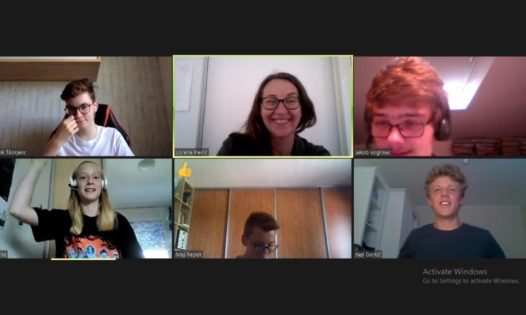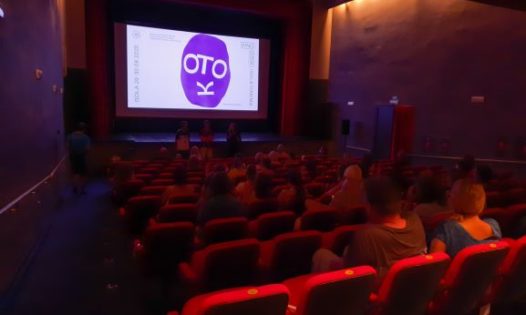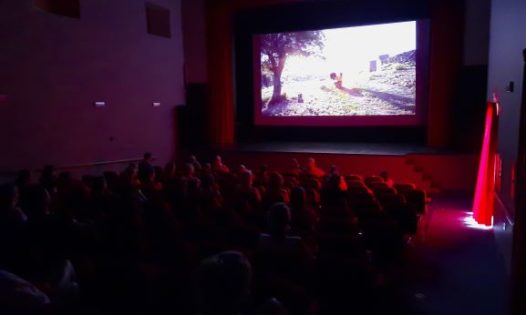Young Programmers from High Schools for the First Time at the Kino Otok International Film Festival
Young Programmers from High Schools for the First Time at the Kino Otok International Film Festival
20 Feb 2020 - 30 Aug 2020
Otok InstituteOnline, Izola
The first Slovenian group of Young Programmers from High Schools ever joined the 16th Kino Otok – Isola Cinema International Film Festival in Izola, for which they selected a film online and presented it to the audience live.
In February 2020, at both high schools in Koper, Slovenian and Italian, we presented a selection of films and guest filmmakers for the Film Club – Young Programmers for High School students, where young people got to know a selection of Slovenian and international documentaries and talks with filmmakers were planned. We had to postpone the live meetings due to the CVOID-19 epidemic and afterwards we moved them online, thus extending the activity until mid-July. We published an open call for participation on our website and social media to which young people from very different parts of Slovenia, including the eastern regions (Slovenj Gradec, Maribor) applied. We conducted 10 online meetings with 10 young people via videoconferences, to which we also invited film directors from different parts of Europe to answer their questions, for example director Eloy Dominguez Seren, who was live from Galicia, Spain. Among Slovenian directors, we had live interviews with Rok Biček and Siniša Gačić. The young people selected among five films. From these, they chose the film Honeyland, which was included in the program of the Kino Otok festival in August 2020 as part of Young Programmers. 6 of the young programmers submitted their written review, which was published in the festival catalogue and website, and attended the screening at the festival, where they presented the film together with the mentor Lorena Pavlič.
They wrote a joint review:
”Honeyland is a documentary film that takes us to the vital tradition of life in a remote part of North Macedonia where the rules of contemporary life are turned upside down and where nature plays the main role. The film is impressive not only in view of the story, but also from the musical and visual perspective. Honeyland’s cinematography is characterised by its frequent use of shadows in which the characters hide. At times, there appear silhouettes, which liven up the film and give it a touch of mysteriousness, while the filming style and the natural characteristics of the filming locations provide for an unforgettable film experience. It is evident that the protagonists do not feel the presence of the camera, which means that they are not acting in the film, but only living their lives. Hatidže harvests honey in the traditional way and represents the philosophy of balance. When an outside family enters her life, their different priorities and a more contemporary mindset lead to a conflict that has a human and a natural side. We see that we can act in coexistence with nature or only to our own benefit, which is characteristic of capitalism in general. There are always at least two possibilities. The difference is even more evident if the worlds clash in the same culture and the same place. Due to the tension, they do not function as yin and yang, but in opposition to their mutual goals and principles. Life is intertwined with actions and decisions that can be good or bad, but nature always shows its power. Because of its brutality, it is rarely merciful. We learn that nature is crucial for the film’s plot and resolution. We thus begin to notice its messages and believe in its power. We thereby show it respect and affinity.”
Films
– Hamada (Eloy Domingues Seren, Sweden, Norway, Germany, 2018)
– Daughter of Camorra /Hči Camorre (Siniša Gačić, Slovenia, 2019)
– Family / Družina (Rok Biček, Slovenia, Austria, 2017)
– Maiden (Alex Holmes, UK, 2018)
– Honeyland / Medena zemlja (Tamara Kotevska, Ljubomir Stefanov, North Macedonia, 2019)




